INTERACTIVE INFORMATION GUIDE for employees and candidates for employment
University of Silesia in Katowice



University of Silesia in Katowice


one of the largest and fastest developing public universities in Poland, and a partner of the European Transform4Europe alliance

offers 80 degree programmes in the 1st cycle, 2nd cycle, and doctoral studies, including international degree programmes taught in English
has 2 doctoral schools and a large offer of postgraduate studies enrolls over 22 thousand students
has eight faculties situated in four cities in the Upper Silesia region: Katowice, Sosnowiec, Chorzów and Cieszyn
324 projects
The University of Silesia in Katowice is included on the Polish Roadmap for Research Infrastructures of the Ministry of Education and Science as the institution is engaged in 10 out of 70 projects carrying out ambitious scientific research
According to the PLOS Biology journal, employees of the University of Silesia are among the researchers having the biggest impact on the development of science. journals.plos.org/plosbiology
publication is available at: journals.plos.org
The University of Silesia is not only engaged in research and didactics A large number of university employees facilitate the very functioning of the university in the legal, financial, promotional, and organisational aspects and prepare university publications.

participation in development of the region by presence in its cultural life
They are responsible, among others, for acquiring, organising and management of projects, realisation of promotional events, employee development, design of the educational process, and organisation of work at the University.. Moreover, they support researchers and academics in their everyday work.
cooperation with local business and third sector organisations
realisation of activities connected with applying for grants realisation of international projects and organisation of events popularising science, e.g. the Number Pi Day and the Silesian Science Festival
cooperation with economic and public institutions, as well as schools and educational institutions

is a special place at the University of Silesia in Katowice, which was established for employees from abroad who work at the University and for those who are interested in employment at USil.

telling the stories of our present employees from abroad
support for the programme "Solidarity with Ukraine"
preparation of materials including information about local customs and everyday life
In the Welcome Point you can get the most important practical information concerning documents required for legalisation of stay, accomodation, facilities, and various possibilities that the University offers to its employees
support for legalisation of stay and collecting documents connecting employees from abroad with one another
presenting the University as a potential place of work to candidates from abroad
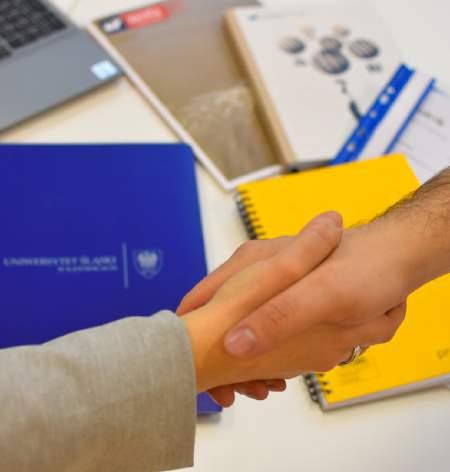

The university is a perfect place for me to grow in scientific knowledge and experience.
A. Nadudvari, PhD Hungary
Localization of the city (Katowice) in South Central Poland means there is no problem to quickly get to Warsaw, Cracow, or to the airport, and from there to many European cities.
Lucie Zormanova, PhD Czech RepublicMy friends helped me a lot. Especially at the beginning when everything was new to me and I had to learn a lot. Thanks to them everything was easier.
A Lowe, PhD Canada
Silesia is a beautiful and fast-developing part of Poland. It is a unique region famous for its culture, cuisine, and traditions. You may broaden your horizons, develop your skills and take up new hobbies. The University of Silesia provides the possibility to work in an open and friendly society and in an international group and to collaborate with universities worldwide.
A.Betekthin, PhD PolandI will tell you something about dreams that you will remember for 80 years. Goethe wrote, “Beautiful moment, do not pass away”. We shall enjoy every moment of life. The fewer of these moments that are left, the more I want to enjoy them. I love life so much. I would like to make a few more films, direct a few plays, teach a few more generations of students. But it is all about the moment lasting longer. „Verweile doch, du bist so schön” – that’s what I always remember.
Prof. Krzysztof Zanussi Polish film and theatre director, producer, and screenwriter




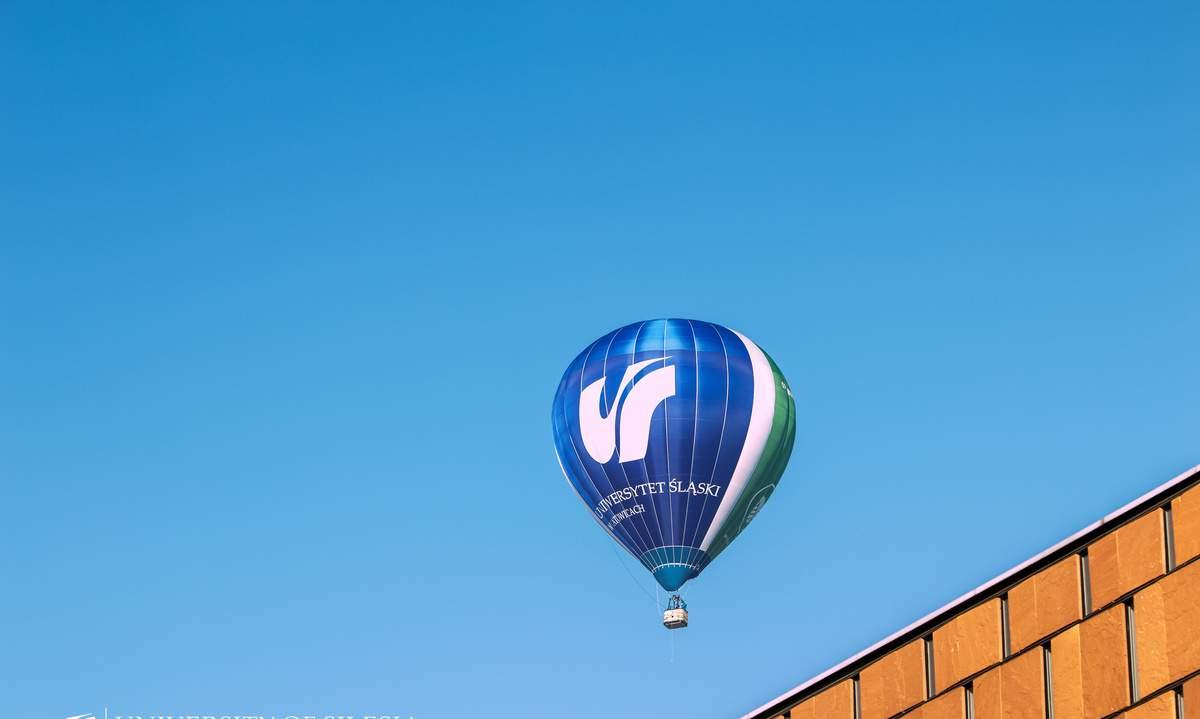

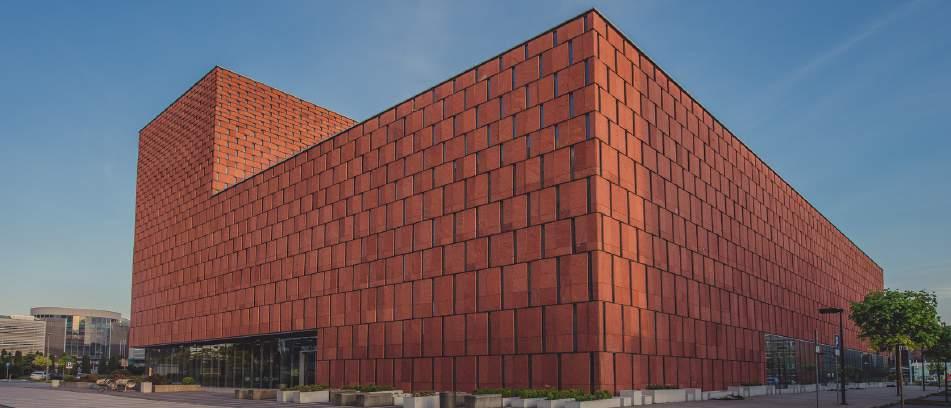
Academy of Fine Arts and Design Academy of Physical Education
Silesian University of Technology Medical University of Silesia University of Economics in Katowice University of Silesia in Katowice (leader) City of Katowice

Awarding the name of the European City of Science 2024 to Katowice is the result of joint efforts of the City of Katowice and the Academic Consortium Katowice City of Science, which consists of: of Music in Katowice in Katowice (strategic partner of the Consortium)
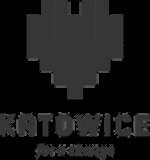

The Scientific Information Centre and Academic Library (CINiBA) is a joint scientific library of two universities in Katowice: the University of Silesia in Katowice and the University of Economics. It is located in the heart of the university campus, in the centre of the Silesian agglomeration.


CINiBA contains the scientific literature of all disciplines represented in both universities. Currently, it includes over 1 2 million publications in the printed form, almost 400,000 of which are in the free access zones. The electronic resources complement literature available on the shelves.

The library of the University of Silesia subscribes to over 60 databases (including many full text databases), making available tens of thousands of journals and around 250,000 books. The majority of the databases can be used by remote access from any equipment connected to the Internet. According to individually reported needs, it is also possible to borrow books from other libraries in the region in Poland and from libraries abroad.
The Scientific Information Centre and Academic Library is not only one of the most modern information centres supporting individual development, but also an ' open library': A place that is friendly both in terms of space and its atmosphere. Innovative technologies allow for full self service in using CINiBA services. However, the library also ensures the specialist help of its employees to all who request it.
CINiBA is a research library, and the majority of its users are employees of the University of Silesia, doctoral students and students of the University of Silesia, University of Economics, and other research centres in the region One major advantage of the Centre is that its space has been carefully planned and now allows for individual studying (rooms for individual work), joint activities (places for group work), and rest (relax zones). Thanks to its comfortable and pragmatic architectural features and facilities, the Centre prevents social exclusion and supports people with disabilities.
CINiBA functions as a centre of scientific information: it allows users to find a way in the vast amount of information and promotes the rules of ethical use of bibliographical sources. It is also a recognisable cultural institution that supports social, didactic, and educational initiatives.
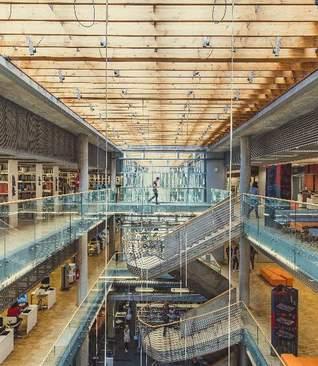


We recommend visiting CINiBA!
Scientific Information Centre and Academic Library ul. Bankowa 11a, 40 007 Katowice tel 32 786 50 00 www.ciniba.edu.pl




















The University Sports Association of the University of Silesia in Katowice (AZS) is a sports club. Its task is organising and running recreational and competitive sports sections. After purchasing AZS Card, employees are entitled to participate in sports activities organised by the Association within various sections.


The School of Polish Language and Culture is an institution of the University of Silesia in Katowice. The School offers, among other things, various online and in class Polish language courses for foreign employees, seminars on the Polish language and culture, seminars and conferences on Polish language and culture, as well as teaching Polish as a second language and translation






political science. Mainz is a big European centre for Byzantine studies, so I got on that track during my studies Byzantine studies may not be very well known to everyone, so I should explain briefly what it is. It’s basically part of late antique and early mediaeval history and it deals with the history and culture of the Byzantine Empire, which is the successor of the Roman Empire in the Eastern Mediterranean. It was ruled from Constantinopole, which is today’s Istanbul, and it had a huge cultural and political impact on the whole Eastern Mediterranean and also on Eastern Europe.
A.S: Today we are talking with Tristan Schmidt, PhD about his life and work in Poland. We are glad that you have found time for this interview, time to share your experience of Poland and of the University of Silesia. Could you tell us a few words about yourself? What is your work, what does it look like, what is your area (field of study)?
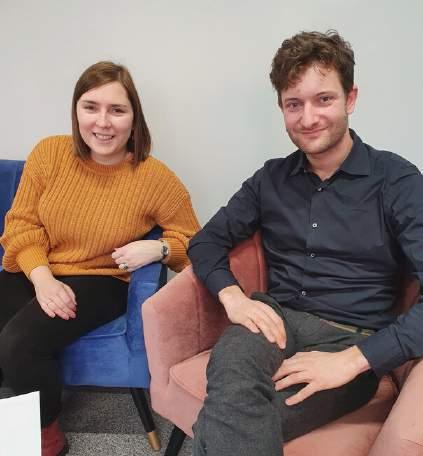
T.S.: First of all thanks for having me. Thanks for welcoming me in Poland. I grew up in Northern Bavaria, in central Germany and I did my studies at Mainz University in historical times and
My specialisation as a Byzantinist is the military history of Byzantium and, as a second focus, which I research here in Poland relations between humans and animals in mediaeval societies. And this is exactly what I am doing here now in Katowice
A.S.: Why did you choose Poland? It might not be considered an obvious choice for work and research.
T.S.: It has to do with my specialisation in Byzantine studies Katowice is also a
centre of Byzantine studies in Europe

An important one. And now there is research research being conducted on on human animal relations in the middle ages, and it fits exactly with what I was doing before and and with my PhD dissertation. So when I saw this job offer, I didn’t hesitate long I applied for it and got the job.
A.S: So both sides are happy because the Univeristy needed a researcher who works in that particular field and you just followed your interest in that field of studies.
Tell me, did you experience so called 'culture shock'? Because it’s probably unavoidable. But maybe in your case it was different.
T.S.: Well, actually, I didn’t have a heavy cultural shock Looking out the window, it it was more a temperature shock because I was working in Istanbul before. Of course language is always a challenge, wherever one goes. But I think as a German speaker I am in no position to complain about complex languages I just need to adapt to it Maybe a bit unusual thing for me is the Polish lunch and dinner times I mean having 'obiad' in the afternoon is something I will never get completely used to Apart from that I think our cultures are not super different from each other Especially in Silesia, which is a region where the Germans and the Polish have lived together and shared history basically since the Middle Ages. We are probably not that different from
A.S.: Is there something that is more difficult in Poland than in Istanbul? Because you mentioned you have worked there.
T.S.: I would say, language wise it’s more or less an equal level of challenge because Turkish grammar is very different from the European languages. In Poland, it is more about the pronunciation, the combination of the sounds which one must get used to. Apart from that, it is much greener in Katowice than in Istanbul, so the feeling of life is different So yes, this is maybe a bit different. But it is not that in one of the places I had major difficulties and in the other did not.
A.S.: Do you speak some Turkish?
T.S.: A bit It takes time to get there but … also for that reason I am following up with that.
A.S.: Are there any words in Polish that are especially difficult for you?
T.S.: I am a bit puzzled by the numbers and it’s the composite between the ones and the tens.
You have -naście and then it changes into dziesiąt. Maybe there are more exceptions than are necessary (laughs) A bit like in French. So numbers are something rather difficult. Also cases and declinations are more difficult than in Romance languages. But, again, this is something that also German has I am happy that I don’t have to learn it.
A.S.: There are always some problems. We have problems with German articles and endings of adjectives.
Why did you choose the University of Silesia? Was it just a matter of your studies? Your research? Or did you read something about this university and liked what you saw?
T.S.: Actually, I visited Katowice some years ago, when I was invited for a talk when I was there doing my PhD dissertation So I already knew that there were nice colleagues around. There was also Professor Marciniak, who invited me, and who is now my boss So I already had the connections, but yes, it was also very topic-related We kept in touch. When I saw that they have this research focus here, I sent my application.
A.S.: How is it to work at the University? Is it comfortable?
T.S.: Yes. I like the work environment and I like my colleagues. I have the impression that the University does quite a lot for its employees, like all the possibilities to apply for Christmas money or Holiday allowance. Also what you are doing now in this project, in Welcome Point, which tries to get foreigners accommodated and used to life at the University. This all made it easier than I expected at the beginning, as I didn’t have a lot of experience when I came here. I had never spent more than a week in Katowice before And in this light, the welcome at the University, the integration, is definitely a pro factor for choosing this university.
A.S: And are there some things that you would correct or add?
T.S.: I know that before the application, when I needed to get information to read about the registration process, a lot of documents were still only in Polish.
I know you are working on that, but this was something that I had to ask my colleagues about at the beginning. I think if there is a set of, at best, English documents and information pages, it would be easier for the foreigners to get an overview even before the application happens and before you get in contact with all the offices that then will help you along the way.
A.S.: Yes. That is a problem, but as you said translations are in process. Well, Silesia has many monuments, many places worth seeing. Did you have the opportunity to sightsee? Maybe you could recommend some places you have been to?
T.S.: Well, actually my wife and I came to Poland by motorbike so we had many opportunities to look around when it was warmer. We went to Wrocław, to Pszczyna. We had a look at the Silesian Museum in Katowice, which is very recommendable if you want to get an overview of the region. So it is a good place to start, and then one can start to go around and visit all these residences, cities of the Silesian dukes from the Middle Ages. We also started exploring the Eagle’s Nest castles’ chain towards Cracow I think we will spend the next three years continuing the exploration, because there are just so many castles I heard that it is also one of the most popular hiking areas in Poland and that there are cycling routes.
A.S.: One more question: if you were to describe Poland in three words that just come to your mind. Words that you associate our country with. Could you think of three such words?
T.S.: It’s difficult…
A.S.: There are no good or bad answers. We’re just curious ;)
Welcome Point which tries to get the foreigners accommodated and used to life at the university...
T.S.: Let me think. From the general perspective I would say 'cold weather', 'friendly people' something like that.
A.S.: That’s two. Anything more?
T.S.: I would add 'pierogi' to all that I have been confronted with them constantly!
A.S.: Great. Thank you for your time and for the interesting conversation.
The Byzantine frescoes | photo: surface on Pixels
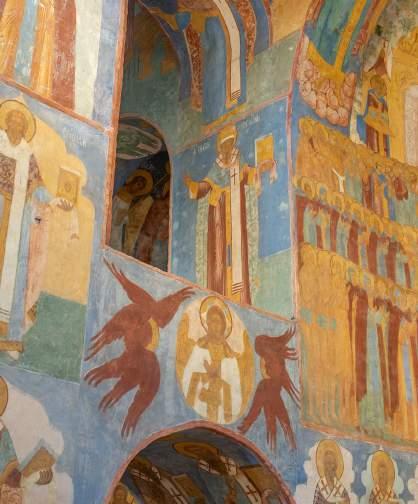
Department International Admissions Office
who graduated in Polish Philology at the University of Silesia, she she suggested that I should take up studies in at USil, which could be for free.
As my level of Polish started advancing, my parents decided to let me study abroad. I graduated in International Polish Studies (MSP) with a major in diplomacy and also a Master’s degree with a major in translation.
A.S.: Good Morning, Anastasiia. We are very glad that you have found a little time for this short interview. We would like to know something more about you. Please tell us where you are from and how your adventure in Poland has begun.

A.H.: I’m more than glad to share my story with everyone I’m from a country friend of Poland Ukraine. My adventure in Poland began when I was 17 years old; my mom once gave me the idea to study a new language (Polish), then I decided to accept this challenge and if everything would go well then I could study in Poland I had a fantastic teacher in Ukraine
To be honest, since I came to the University, I thought it would be great to work in the international community, and the International Admissions Office caught my eye While I was a student, I had been a buddy for the exchange students for the Erasmus+ Admissions at our University.
After I graduated, I applied for the position in the International Programme Office, successfully passed the interview, and I was accepted to the job position.
A.S.: Did you experience shock when you first came to Poland?
A.H.: Hmmm, on the one hand I can say yes and on the other no Ukrainian and Polish cultures are a bit similar to each other, but there is one thing that
surprised me. In the beginning, I used to say sorry if some of my words could hurt someone.
THANK YOU to the School of Polish Language and Culture which taught me not only the language but also the culture.
...
Poles blow their noses so loudly and do it in all places, even in the room during an exam or an important conference. I'm sorry, but even after 6 years of being in Poland, I still can't accept it.
A.S.: Did you attend the Polish classes organised by the School of Polish Language and Culture?
A.H.: As I was a student, I was obliged to attend classes in the Polish language. I was a bit lazy because classes were in the evening. But I have never regretted it. I can say a huge THANK YOU to the School of Polish Language and Culture which taught me not only the language but also the culture
A.S.: Did you have problems with our language? Do you have your own methods for learning Polish?
A.H.: Like all foreigners, I also had problems with the language The Polish letter ł was the most difficult to pronounce, and the name of the
city of Łódź was even harder. Another problem that I faced here was the endings that you use in declination (i.e. inflection of nouns) and conjugation (i e inflection of verbs). As the Ukrainian language is a bit similar to Polish, I was trying to mix two languages at the same time, and I thought that people would understand what I meant, which wasn't true.
A.S.: Why did you choose to work at the University of Silesia in Katowice?
A.H.: I've always wanted to work with foreigners, no matter to what extent, I just wanted to work with people. The University of Silesia has has welcomed me not only as a student but also as an employer.
A.S.: Every year the University of Silesia organises the Silesian Science Festival KATOWICE, and every employee can take part in this event. Did you participate in the last edition of the Festival?
A.H.: I haven't had a chance to participate in this festival, perhaps I will try to be a part of it next time.
A.S.: Silesia has many monuments and historical sights. Is there any particular place which you would like to visit?
A.H.: I've already visited many places in Silesia, but there is one place in particular that I have never been to:
the Polish National Radio Symphony Orchestra. I would really like to go there for a concert at least once.
A.S.: If you were to choose three words that, in your opinion, describe Poland best, what words would that be?
A.H.: I would say that Poland is an actual good start, a great place for developing and a safe country.
A.S.: Thank you :)
On the second Saturday of November, an integration meeting took place.
Participants in the excursion had the opportunity to learn about the history and culture of Silesia by visiting the Silver Mine in Tarnowskie Góry.

Participants who took part in the excursion are employees of the University from various countries: the Czech Republic, Ukraine, Greece, Croatia, France, Italy, Russia, Germany, Vietnam, India, Canada, and Hungary.



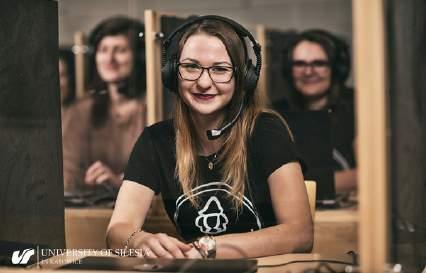
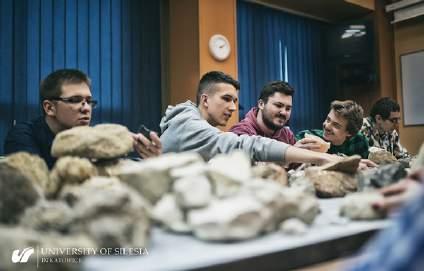


The Castle Museum in Pszczyna is an exceptional place in Poland. The Castle is a perfect example of the residence of an aristocratic European family, which, in later years, not only had an influence on the fate of the Pszczyna region and of Silesia, but was also a part of events connected with the history of Poland and Europe.
The Castle survived both World Wars and today it retains 80% of its historical furnishings. Authentic interiors from the turn of the 20th century, carefully reconstructed on the basis of the rich iconographic materials from 1915 and Castle inventories, as well as numerous preserved memorabilia connected with the Dukes of Pszczyna, are the greatest assets of the Museum.
Guests can also admire the restored Duke’s Stables, which once belonged to the Castle complex Apart from the stables themselves, dating from the 19th century, these buildings include the coach house, from the same time, an 18th century mill, and garages from the beginning of the 20th century Today the place is used for permanent and temporary exhibitions, a multimedia
library, and a monument preservation studio. The Castle Museum in Pszczyna also includes the picturesque Hunting Lodge 'Prominice' located in the Pszczyna forest. It was built in 1861 since hunting was the dukes’ favourite pursuit. Later the Hunting Lodge was rebuilt after a fire in 1867, but it retained its construction unchanged and has similar interiors to the originals
The Castle in Pszczyna together with the Dukes’ Stables and the Hunting Lodge “Promnice” comprise a unique part of Polish and World cultural heritage.
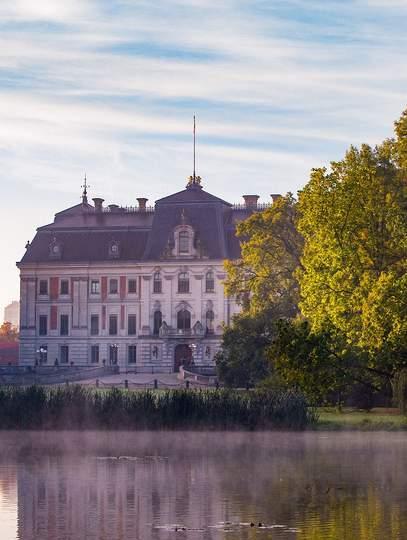




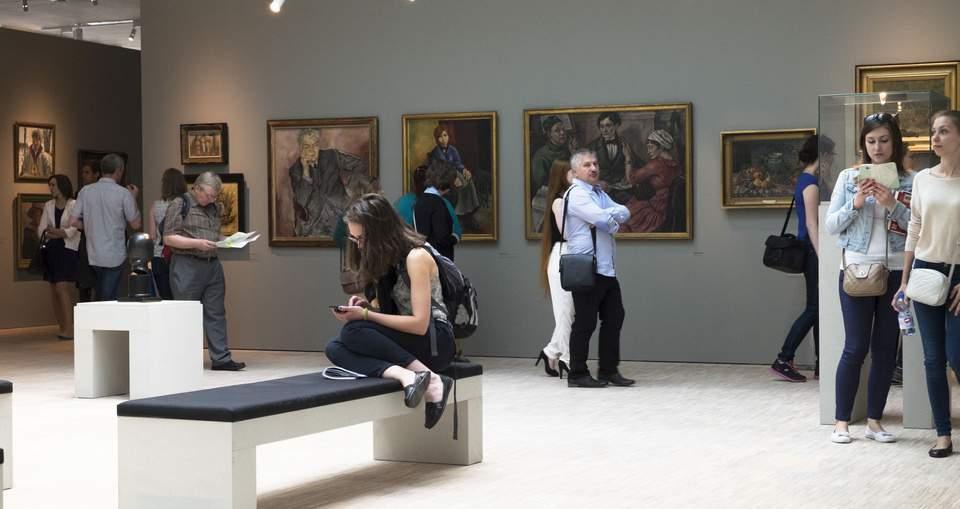

The venue of the museum at the former mining site points to the significant role that the industry has played in the region We have turned the former coal mine into a cultural mine, and provided access to rich and diverse collections 14 metres below the ground level The depths of the earth now contain the Gallery of Polish Art 1800 1945, the Gallery of Polish Art since 1945, the Gallery of Silesian Religious Art and the Gallery of Non Professional Art, as well as the hugely popular exhibition “The Light of History: Upper Silesia over the Ages.”
The underground space also includes educational rooms, a library with a reading room, an auditorium with 320 seats, an educational corner for children and a space for temporary exhibitions that is 12.5 metres high.
Along with the adjacent park, Silesian Museum's venue located at ul. T. Dobrowolskiego 1 in the Culture Zone is an ideal space for debates about the region, educational activities, film screenings, music festivals, sports tournaments, and family walks. The Silesian Museum, which came into existence as the answer to the needs of Silesia’s inhabitants and the challenges ahead, has come to be the region’s most important cultural centre, an essential part of Silesia’s social life and a major presence on Poland’s cultural map.


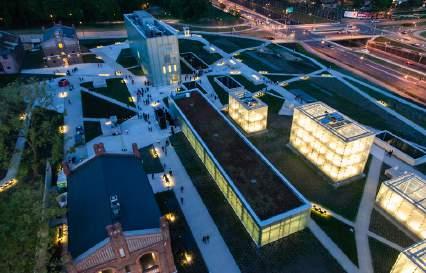

Based on the article by Emilia RekoszCebula, PhD published in Gazeta Uniwersytecka (University of Silesia Magazine) in December 2021.
Making use of grants is an indispensable part of the work of academics. However, preparing a successful application for a grant is a difficult task.
Nowadays, there are many possibilities to receive a grant for research purposes, educational activities or mobility grants As a result, it is sometimes not easy to find the grant that matches our plans and activities Therefore, the Project Department of the University of Silesia tries to help employees in the search for external financing. University employees may call a special phone number for a consultation In this way, they are provided with a personalised review of the currently available programmes.
Since the application process is rather complex, the University has also prepared the Project Zone where its employees can find all the information necessary for obtaining a project grant
In the 'Open programmes ' tab, there is a daily updated database of the open funding opportunities arranged according to disciplines and types of projects In the Project Zone, you can
also read about the projects that are currently being realised at the University, including descriptions of the projects, as well as the sources and amounts of funding. These descriptions of existing projects can be a great source of inspiration
After choosing the source of financing, it is a good idea to take part in the training course concerning the selected programme and in networking meetings where you can share your idea for research with others, find a partner for your project or be found as a partner by other institutions The list of networking meetings is available in a separate tab.
Preparation of the project application is a demanding process, but it can bring a lot of satisfaction It consists, among other things, of many stages that go beyond the project's subject matter.
In order to give university employees the chance to concentrate only on the concept of the project, the Project Department supports them in its administrative and financial aspects. In the year 2020 alone, the University of Silesia submitted over 450 applications for projects and received more than PLN 120 million for the realisation of over 100 projects
As soon as financing is granted, the employee can start realising the project. They need to sign the agreement and prepare project documentation, and can take decisions concerning the project team as well as other binding, important decisions Therefore specific project teams assist and support project managers and coordinators on particular stages of project realisation In the Project Zone, all vital contact information can be found: contact details of the Project Department employees and its management, and contact details of the project teams functioning in particular faculties that, together with the Project Department, help in finding sources of financing and preparing the applications.
Finding a source of financing for one ’ s idea is not always possible. Nevertheless, the experience gained in the process and thinking the idea over in a thorough way for the needs of the project application can be very inspiring and may help in the search for financing in the future
(Source: Gazeta Uniwersytecka (University of Silesia Magazine), December 2021)
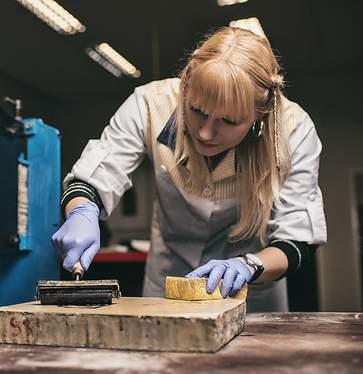

The University of Silesia is a part of the European University Transform4Europe (T4EU).

The T4EU alliance is formed by diverse institutions of higher education from across all four regions of Europe. They have joined forces to transform themselves and their cooperation with each other in order to drive the transformation of Europe T4EU is active in Poland, Lithuania, Bulgaria, Estonia, Spain, Italy, and Germany and soon in Slovenia and Portugal, two new partner countries.
The aim of the T4EU alliance is to embed strong transnational network of universities
in a network of stakeholders from the surrounding regions and creating an interregional knowledge and innovation ecosystem.
Within this interregional knowledge and innovation hub, students, academic and non-academic staff and regional stakeholders from across Europe will cooperate to generate new practice oriented knowledge concerning digital transformation and smart regions, environmental transformation and sustainability, and societal transformation and inclusion, jointly driving the development of Europe and the EEA through the regions.
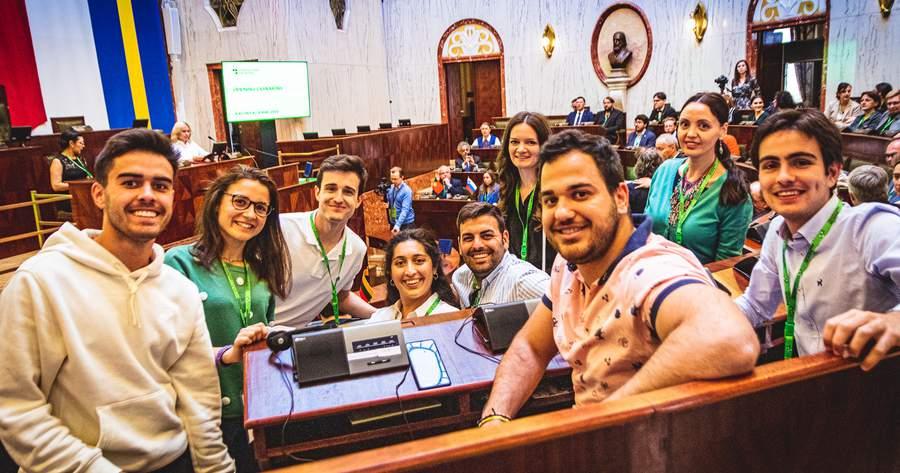
Setting up highly integrated joint co creational governance structures comprising managerial, academic and non academic staff, students and regional stakeholders, as well as joint administrative structures in selected areas.
Jointly creating new forms and models of innovative content, pedagogical tools, and teaching and learning approaches, and integrating existing digital infrastructures into the T4EU collaborative tool.
Harmonising curricula, automatising the recognition of all degrees and individual modules, and making mobility the norm for all T4EU members.
Strengthening university region cooperation and integrating knowledge-entrepreneurialism into the universities’ profiles and curricula.
Strengthening European identity within the partner universities, enabling their members to act as transformation agents in shaping the future of Europe.

One


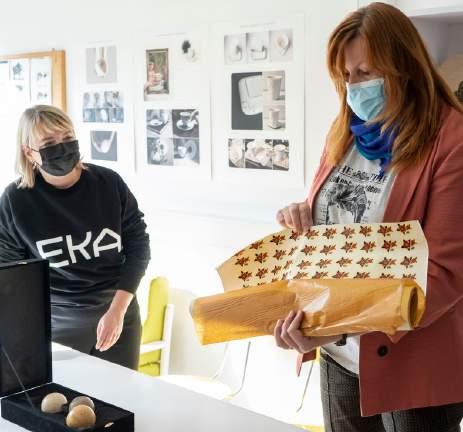
Research Excellence Initiative is the programme created by the University of Silesia in Katowice The programme includes the annual financial support in the amount of over PLN 6 million. These financial resources are allocated for financing of the research activities of the individual researchers and research groups, development and improvement of competencies of the academic community and for the activities increasing the recognisability of the university.
The programme named 'Research Excellence Initiative' is financed by subsidies from the Ministry of Education and Science for the period of 2020 2025 funds obtained in connection with the University’s participation in the “Excellence Initiative Research University” programme

In practice, Research Excellence Initiative translates into co financing, among others, the following activities:
initiatives supporting various research development activities (e g the „Freedom of Research”, „Green Horizon/Post-COVID Horizon”, and „Visibility of Research Centres” calls for proposals); scientific internships in the renowned scientific institutions
answering research needs of the teams focusing on research in the area of the university’s Priority Research Areas (PRAs), including co financing of the key research, educational and artistic infrastructure, research visits and materials for research development of qualifications and competences of the university employees, doctoral students and students;
additional motivational pro quality grants for the doctoral students and many other initiatives.
1497
Grammarly premium licences for employees, students, and doctoral students of the University of Silesia, funded under the IDB
Read more
39 published open access articles funded under the ‘Open Access’ call for proposals
Read more
5
Priority Research Areas (PRA) within which research intensive activities are carried out, funded as part of the IDB
Read more
37
pro - quality scholarships awarded to doctoral students from the doctoral schools at the University of Silesia
243
1st and 2nd edition winners of the ‘Freedom of research’ call for proposals
Read more
13
Read more scientific internships planned in 2022 and lasting a minimum of 60 days, at renowned foreign research institutions and partner institutions of the Transform4Europe alliance (T4EU), funded under the ‘Mobility | Science’ programme'
Read more
10
interdisciplinary and international research teams ready to apply for grants under the Horizon Europe programme, who have received funding as part of the ‘Post-COVID Horizon’ and ‘Green Horizon’ call for proposals
Read more
9 research centres of the University of Silesia in Katowice, which have received funding for research and research and development activity under the 1st and 2nd edition of the ‘Visibility of Research Centres’ call for proposal
Read more
photo
Faculty
‘Metamorfozy’ album
Beneficiary
Faculty of Science and Technology
Searching for new anticancer medications
Beneficiary of the ‘Freedom of research’ programme
Agnieszka Babczyńska PhD, Assoc. Prof. Faculty of Natural Sciences

Life by a highway effects of herbivorous invertebrates exposure to tire dust | Beneficiary of the ‘Green Horizon’ programme
Faculty of Science and Technology
Beneficiary
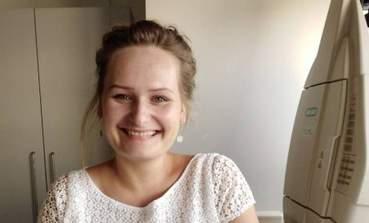



Faculty of Social Sciences

Health literacy of (vice )principals of schools during the COVID 19 pandemic | Beneficiary of the ‘Post-COVID Horizon’ programme
Faculty of Social Sciences | Are robots the pets of the 21st century? Human relations with machines
Beneficiary of the ‘Freedom of research’ programme
Winter semester from 1 October 2022 to 26 February 2023, including:

classes: 3 October 2022 22 December 2022 winter holidays: 23 December 2022 8 January 2023 classes: 9 January 2023 31 January 2023 winter exam session: 1 February 2023 – 19 February 2023 winter break: 20 February 2023 26 February 2023 winter retake session: 27 February 2023 14 March 2023
Summer semester from 27 February to 30 September 2023, including:
classes: 27 February 2023 5 April 2023 spring holidays: 6 April 2023 11 April 2023 classes: 12 April 2023 25 June 2023 summer exam session: 26 June 2023 – 9 July 2023 summer retake session: 1 September 2023 24 September 2023 summer holidays: 10 July 2023 30 September 2023 (including a minimum of 4 weeks of uninterrupted summer holidays, internship)
Date Name Type
1 Jan. 6 Jan. 14 Feb. 20 Mar. 15 Apr. 16 Apr. 17 Apr. 18 Apr. 1 May 2 May 3 May 26 May 1 June 5 June 16 June 21 June 23 June 15 Aug. 23 Sept. 1 Nov. 11 Nov. 21 Dec. 24 Dec. 25 Dec. 26 Dec. 27 Dec. 31 Dec.
Saturday Thursday Monday Sunday Friday Saturday Sunday Monday Sunday Monday Tuesday Thursday Wednesday Sunday Thursday Tuesday Thursday Monday Friday Tuesday Friday Wednesday Saturday Sunday Monday Tuesday Saturday
New Year's Day Epiphany
Valentine's Day March Equinox Good Friday Holy Saturday Easter Sunday Easter Monday Labour Day / May Day Day of the Flag Constitution Day Mothers' Day Children’s Day Whit Sunday Corpus Christi June Solstice Fathers' Day Assumption Day September Equinox All Saints' Day Independence Day December Solstice Christmas Eve Christmas Day Second Day of Christmas National Day of the Victorious Greater Poland Uprising New Year'sEve
National holiday National holiday Observance Season Observance Observance National holiday National holiday National holiday Observance National holiday Observance Observance National holiday National holiday Season Observance National holiday Season National holiday National holiday Season Observance National holiday National holiday Observance Observance
January Fabruary March April
Expo 2020 Dubai
14th and 15th lecture of Prof. Andrzej Lasota series
Seminar | Electives, authorities, and their functions. The university of tomorrow in the era of the cognitive apocalypse “Metropolitan Prospects for a Better Urban Future Ideas, Inhabitants, Institutions” | International scientific conference
[ONLINE] Lecture “Women in autism spectrum – facts and myths”
[ONLINE] Lecture “Accessibility for people with simultaneous hearing and visual impairment”
[ONLINE] Cyber security training
[ONLINE] Lecture “Communication awareness and technologies increasing accessibility of people hard of hearing”
Seminar entitled “The university as a particularly complex organisation: how to manage it?”
Educational Festival “New inspirations” WOM 2022
European Forum of Young Leaders
Lectures by Prof. Romá Tauler Ferré and Prof. Alejandro C. Olivieri
Ceremony of awarding the title of honorary doctorate degree of University of Silesia to prof. Romá Tauler Ferr
May June July August September October November
T4EU Week;
6th seminar on a new concept of studies at the University of Silesia Conference | The impact of COVID 19 on the justice system. Case study and suggested solutions
Prof. Joseph H.H. Weiler guesting at the University of Silesia
Legal conference and contract between the Polish Bar Council and CYBER SCIENCE
Ecological Thinking Club: “About wolves, people and our relationship with nature” Official ceremony concluding the 14th edition of Rector’s Distinctions Science Zone at the World Urban Forum (WUF11)
EuroScience Open Forum 2022 Regional Site conference in Katowice
International Student Folk Festival
The City's Birthday "I Love Katowice"
European Congress of Small and Medium-sized Enterprises Industriada Interuniversity Inauguration of the Academic Year 2022/2023
Inauguration of the academic year 2022/2023
Prof. Michael C. MACKEY, honorary doctor Faculty inaugurations
Student Day
December
International Day of Persons with Disabilities
Silesian Science Festival KATOWICE
Silesian Science Award Gala
Christmas concert connected with the 10th anniversary of CINIBA (together with the University of Economics)
#KierujSięNaTradycję
ŚFN On Tour
Presentation of badges, distinctions for special guests at the invitation of the Rector; University balls (e.g., student, alumni)
Anniversary concerts and other academic concerts
Occasional events that integrate the academic community initiated by students and the Council of the Student Government
Occasional events that integrate the academic community (organised by academic and non academic employees)
Artistic events organised at the Faculty of Arts and Educational Science (exhibitions, concerts)
Around the Social Sciences
The Silesian Science Festival is one of the largest popular science events in the country and Europe, organised since 2016 The leader and originator of the event is the University of Silesia in Katowice. However, the event is organised with other universities and the City of Katowice (the event's host city)
The programme includes various activities promoting science and art. There are lectures, workshops, exhibition stands, exhibitions, concerts, meetings with special guests and other initiatives.
The festival space is divided into six zones dedicated to Nature, Technology, Humanities and Social Sciences, Exact Sciences, Medicine and Health, and Art, as well as special zones.
The next sixth edition of the Silesian Science Festival KATOWICE will take place from 3 to 5 December at the International Congress Centre
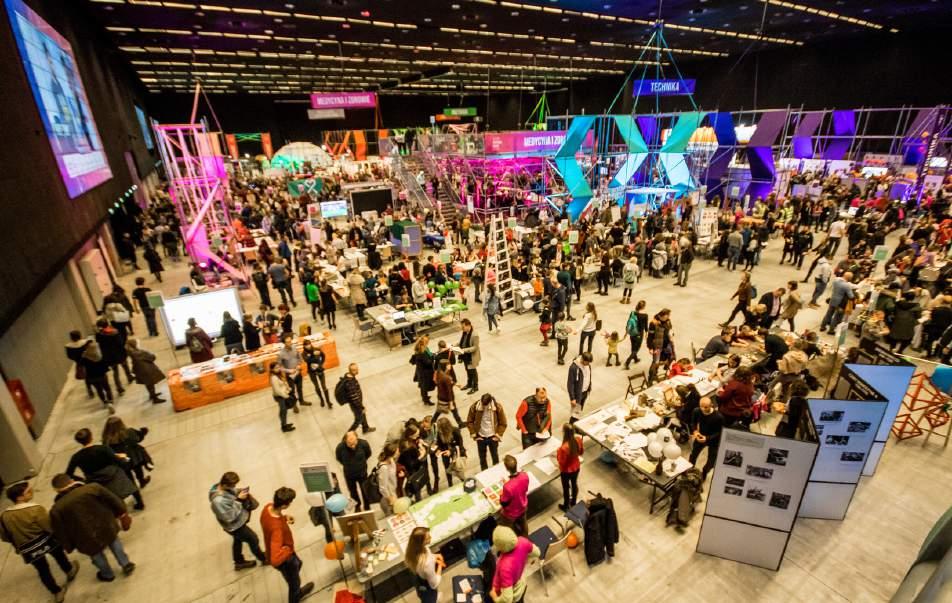

Faculty of Humanities wh@us.edu.pl
Study IT Service Department Portal and Web Service Department webmaster@us.edu.pl
Faculty of Science and Technology wnst@us edu pl
Faculty of Theology wtl@us edu pl
HR Department dhr@us.edu.pl
Academic Housing Estate in Cieszyn oac@us edu pl
Recreation Centre in Szczyrk owsz@us edu pl
Department of Personal and Social Affairs kadry@us.edu.pl
School of Polish Language and Culture szkola@us edu pl
Foreign Language Teaching Centre spnjo@us.edu.pl
Silesian Centre for Education and Interdisciplinary Research smcebioffice@us edu pl
Museum of Earth Sciences mnozs@us edu pl
University Units and Bodies Archive archiwum@us edu pl
Centre for Translation Services cut@us edu pl
College of Individual Interdisciplinary Studies at the University of Silesia in Katowice ism@us.edu.pl
Faculty of Natural Sciences wnp@us.edu.pl
Faculty of Law and Administration sekrwpia@us edu pl
Department of Network Administration and Services hosting@us edu pl postmaster@us.edu.pl
Distance Learning Centre administrator moodle@ us.edu.pl
Scientific Information Centre and Academic Library (CINiBA) sekretariat@ciniba.edu.pl
Academic Housing Estate in Katowice-Ligotа oak@us edu pl
Media Communication Centre wiadomosci@us edu pl tlumaczenia@us edu pl multimedia@us.edu.pl newsletter@us.edu.pl
University of Silesia Press wydawnictwo@us.edu.pl
Computerisation Director dinf@us.edu.pl
Тeacher residence hall da3@us edu pl
Centre for Chinese Language and Culture cjikc@us.edu.pl
Faculty of Social Sciences wns@us edu pl
Krzysztof Kieślowski Film School sf@us.edu.pl
International Relations Department international@us edu pl admission@us edu pl erasmus@us.edu.pl
Academic Housing Estate in Sosnowiec oas@us.edu.pl
Faculty of Arts and Educational Science wsne@us.edu.pl

ul Bankowa 14, room 415 40 007 Katowice +48 359 23 46 +48 516 374 959
come2us@us edu pl
Monday to Friday 7:30 a.m. 3:30 p.m.
'Come2US' professionalisation and centralisation of support of the foreign employees of the University of Silesia in Katowice”
Project financed by the Polish National Agency of Academic Exchange (NAWA) as a part of Welcome to Poland Programme (2020)